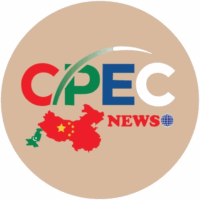## Pakistan Endorses AIIB as Model Multilateral Bank, Calls for Reform in Global Finance
Pakistan has lauded the Beijing-based Asian Infrastructure Investment Bank (AIIB) as a pioneering model of multilateralism, citing its vital assistance following the nation’s catastrophic 2022 floods. The country concurrently urged for developing nations to secure enhanced representation, including potential veto authority, within global financial institutions.
Speaking at a roundtable commemorating the AIIB’s 10th anniversary, Kazim Niaz, Secretary of Pakistan’s Ministry of Economic Affairs, affirmed Pakistan’s status as a principal partner of the bank and a staunch supporter of its governance structure. Niaz emphasized that this structure empowers emerging economies. “We have always viewed AIIB as a development partner of strategic importance and great potential,” Niaz stated. “Its inclusive governance framework and consensus-oriented decision-making approach are core characteristics that we highly appreciate.”
Niaz highlighted Pakistan’s role as a founding member, detailing collaboration with the AIIB on diverse initiatives spanning clean energy, urban metro systems, and digital infrastructure. He commended the bank’s “Lean, Clean, and Green” identity and its “fast and flexible” financing mechanisms, essential for a nation confronting substantial infrastructure gaps.
The Secretary particularly underscored the AIIB’s response to Pakistan’s unprecedented 2022 floods, noting its coordination with the World Bank and Asian Development Bank. “The innovative support provided by AIIB in its financing instruments had a huge positive impact on our post-flood reconstruction work,” Niaz remarked. Looking ahead, he expressed Pakistan’s intent to strengthen its partnership with the AIIB to develop resilient “smart infrastructure” capable of withstanding severe climate impacts such as heatwaves, floods, and water scarcity.
Advocating more broadly, Niaz contended that the world’s interconnected crises—from debt burdens to climate change—necessitate a unified stance among developing nations. He urged these countries to coalesce and secure a substantive voice, and even veto power, on the boards of directors and governors of multilateral development banks (MDBs). “The countries, previously underrepresented in these institutions, need to gain greater influence on key issues, even a veto power,” he added.
Niaz called for MDBs to evolve beyond mere financiers into “treasure troves of knowledge,” aiding nations in building project implementation capacity, ensuring debt sustainability, and utilizing their platforms to “de-risk” private sector investment. He identified the AIIB as a frontrunner in this transformation. “AIIB represents a new type of multilateralism… a new development paradigm,” Niaz asserted. He explained that the bank is founded on mutual trust and shared priorities, instilling confidence in developing countries that they can collaboratively resolve their challenges.
